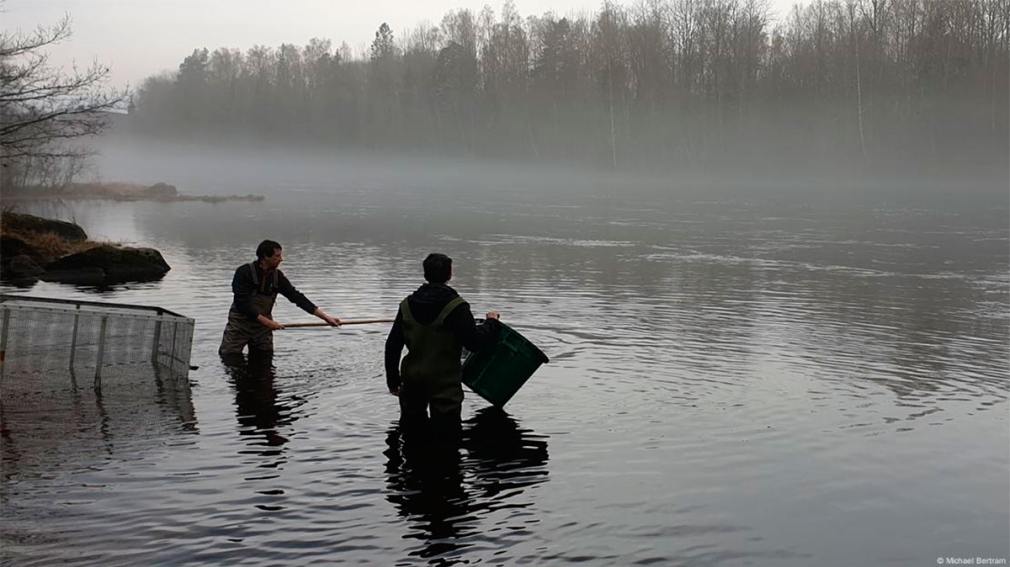Salmon Are Being Exposed to Our Anti-Anxiety Medication, and It's Making Them Take More Risks, Study Suggests
Atlantic salmon exposed to a common anti-anxiety drug migrate faster, according to new research. That’s not necessarily a good thing
Sara Hashemi - Daily Correspondent
April 16, 2025 1:02 p.m.

Researchers Daniel Cerveny and Marcus Michelangeli collecting salmon from the Dal River in Sweden. Michael Bertram
Humans take a lot of medication, and small doses of those drugs—including antibiotics, antidepressants, birth control and more—find their way in the environment through wastewater, even after it’s treated. Nearly 1,000 different pharmaceuticals have been detected in waterways all over the world, even in Antarctica. Now, a new study sheds light on how these drugs affect wildlife behavior.
“Pharmaceutical pollution, or chemical pollution in general, is really this invisible agent of global change,” says Jack Brand, the study’s lead author and an environmental researcher at the Swedish University of Agricultural Sciences, to Benji Jones at Vox. “It’s probably posing a greater risk than at least what the public acknowledges. This is a potentially significant threat to our aquatic wildlife.”
To better understand this risk, Brand and his team gave young Atlantic salmon the drug clobazam—a common anti-anxiety and sleep medication—in doses that might mirror what they’re exposed to in the wild. The team used tracking tags to monitor how the medication affected the fish’s 17-mile migration from the Dal River in Sweden to the Baltic Sea.
The salmon that were given clobazam were more likely to reach the sea than the untreated fish. They also quickly passed through two major hydropower dams that often slow other fish down. The new findings were published in the journal Science last week.
More:
https://www.smithsonianmag.com/smart-news/salmon-are-being-exposed-to-our-anti-anxiety-medication-and-its-making-them-take-more-risks-study-suggests-180986424
